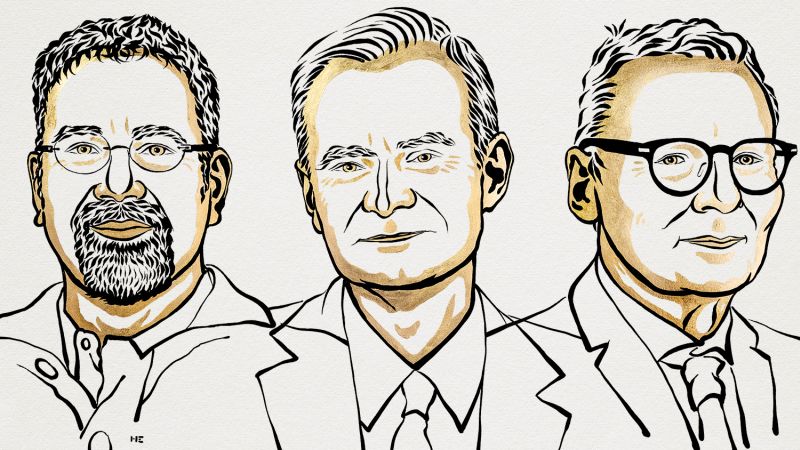Three economists were awarded the Nobel Prize for their research into how institutions impact a country’s wealth. Daron Acemoglu, Simon Johnson, and James Robinson were praised for explaining how societies with poor rule of law and exploitative institutions fail to generate growth or positive change. They showed that colonization led to the introduction of both inclusive and extractive institutions, with countries that developed inclusive institutions becoming prosperous over time.
Acemoglu and Robinson’s book “Why Nations Fail” argues that political and economic institutions determine a nation’s wealth. They compare two towns called Nogales to illustrate how institutions can impact prosperity. Last year, Acemoglu and Johnson published a study on how technological innovations have benefited elites rather than creating prosperity for all. They warned that the current path of artificial intelligence is not beneficial for the economy or democracy.
Acemoglu stated that their research favors democracy but cautioned that it is not a cure-all for economic growth. He acknowledged that authoritarian regimes may have a harder time achieving sustainable innovation outcomes. The economists argued in their book that China’s lack of inclusive institutions would hinder its economic growth. However, Acemoglu noted that China has made investments in innovative fields such as AI and electric vehicles.
The economics prize, officially known as the Bank of Sweden Prize, was established in 1968 by Sweden’s central bank. Last year’s prize went to Claudia Goldin for her research on women in the labor market. Goldin’s work showed how the gender pay gap has evolved over time, with more recent disparities emerging between men and women in the same occupation, particularly after a woman has her first child. This year’s Nobel Prize winners highlighted the importance of inclusive institutions in fostering economic growth and development.













